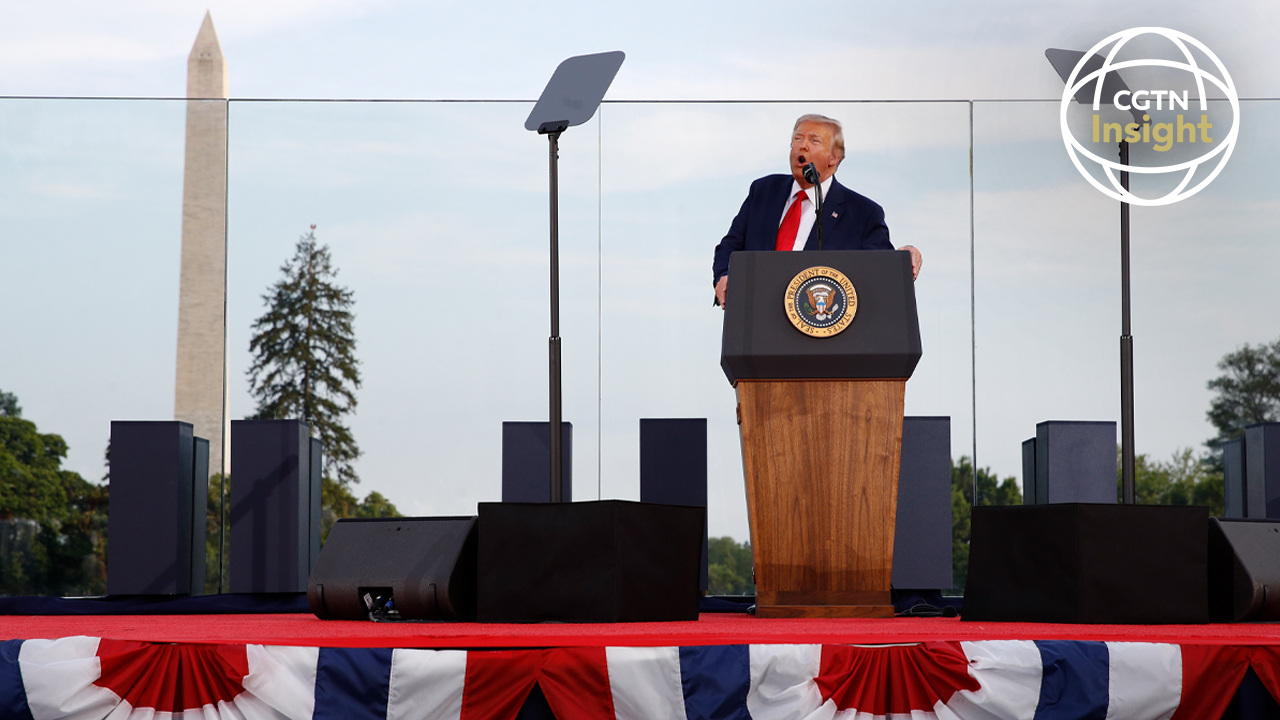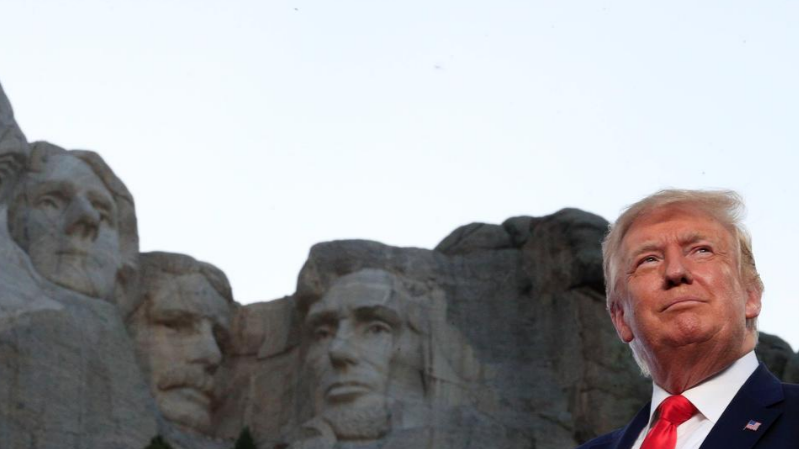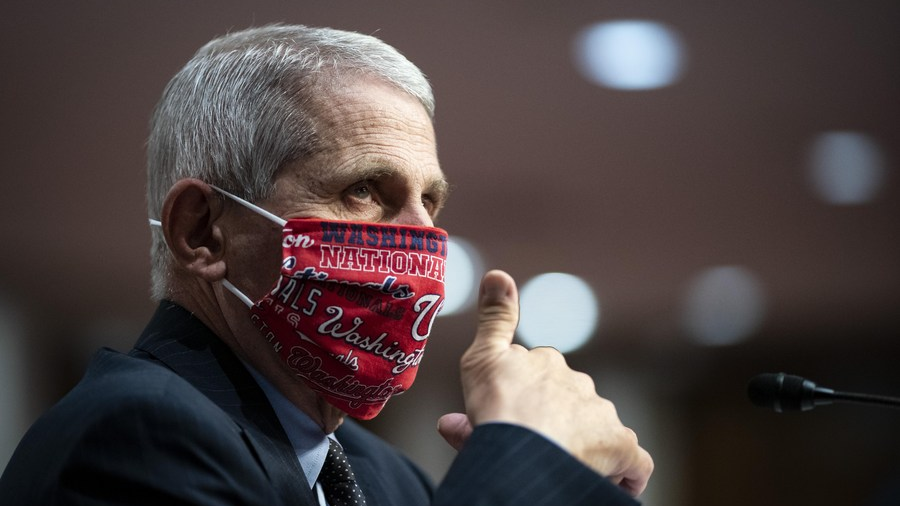
In real estate, "enough belief makes the whole thing fly," wrote Washington Post's columnist David Von Drehle, "real estate developers begin as storytellers…they need people to believe them." When U.S. President Donald Trump chanted opening up America despite rising COVID-19 numbers, Drehle saw that "he (Trump) wanted us to believe, as if belief would make it so. The danger would be over when we all agreed to stop thinking about it."
Trump's media-savvy storytelling and the genuine trust inspired in a portion of the American population earned him Republican nomination and the presidency in 2016. And he's hoping that the same strategy would work a wonder again in 2020. But, the problem with storytelling is that the content doesn't always have to be precisely in accordance with reality. What people are told or made to believe isn't necessarily how events really unfolded.
In the past two days, Trump gave two speeches in the "Salute to America" celebration of July 4, the Independence Day. Frankly, this year's Independence Day isn't celebrated under the best circumstance. Domestic unrest ensued from the death of George Floyd is still raging across the United States. The country is still been ravaged by COVID-19 pandemic. And the president, instead of preaching unity, told his audiences his version of the situation they are in.
In the shadow of Mount Rushmore where the likeness of four American presidents are carved into the mountainside, Trump warned the attendees that there's a "left-wing cultural revolution" and "far-left fascism" in the country. These "angry mobs," as told by Trump, are waging "a merciless campaign to wipe out our history, defame our heroes, erase our values, and indoctrinate our children."
For his loyal supporters, this kind of rhetoric is undoubtedly welcomed. The idea of the "American heritage" is often said to lie at the core of Trump's base voters, and the world has seen statues of United States' founding fathers being vandalized and the calls for removing the vestiges of the Confederate. However, Trump's emphasize of "left-wing" and "far-left" serve only one purpose. Barring the fact that there's no concrete proof that all the vandalizers were from the political left, the rhetoric could only hype-up the political division by pitting his audience against his political opponents.

U.S. President Donald Trump smiles without wearing a mask at Mount Rushmore National Memorial, near Keystone, South Dakota, July 3, 2020. /AP
U.S. President Donald Trump smiles without wearing a mask at Mount Rushmore National Memorial, near Keystone, South Dakota, July 3, 2020. /AP
As the president presiding over tumultuous time in his country, it is his responsibility to take in the perspectives from all sides. Bruce Roberts, a private resident of the state of Mississippi who's fine with the statues and the Confederate symbols, told ABC News after his city council voted to take down the Mississippi flag, the design of which incorporates Confederate battle flag, that "If somebody says that they are offended, people of goodwill, if they are offended, and they don't like it, I mean I do have to be cognizant of that."
If a private resident should be cognizant of that, then the leader of the country should be too. However, Trump's politicization makes his words apathetic and indifferent towards the feelings of a part of U.S. population while antagonizing another portion of the population against them. The act is especially unseemly when the occasion is meant to celebrate the nation as a whole and the unity of its people.
COVID-19 is another story to be told and Trump has been telling it for months. Trump has been lauding his administration's response to the pandemic for months. Standing in the South Lawn of the White House, the President of the United States, again, took the chance to repeat his praises for himself while claiming to hold China accountable for the pandemic.
However, the fact is that his administration isn't exactly in an agreement with the president's assessment. Robert Redfield, Director of U.S. Centers for Disease Control and Prevention, said during a House hearing in June that he is concerned that the government's "public health message isn't resonating." Anthony Fauci, the country's top infectious diseases expert and a lead member of Trump administration's White House Coronavirus Task Force, said on June 30 that he is concerned because "we are going in the wrong direction." He believes that the U.S. "is not in total control" of the virus and that he "would not be surprised if we go up to 100,000 a day if this does not turn around." The Speaker of the U.S. House of Representatives Nancy Pelosi's comment was more succinct: "This administration has failed miserably."

Anthony Fauci, Director of the National Institute of Allergy and Infectious Diseases, testifies before the U.S. Senate Committee in Washington, D.C., June 30, 2020. /Xinhua
Anthony Fauci, Director of the National Institute of Allergy and Infectious Diseases, testifies before the U.S. Senate Committee in Washington, D.C., June 30, 2020. /Xinhua
And yet, the "Salute to America" event was held without any COVID-19 protection measures. Masks and social-distancing were not demanded of the attendees, even though within the past several days the COVID-19 daily infection numbers keep breaking records in the United States. On July 1, more than 50,000 new cases were reported, and the daily count stayed above 50,000 from July 1 to July 3. Trump himself has been reluctant to wear a mask, and he wasn't wearing one in spite the fact that Kimberly Guilfoyle, Trump campaign's top fund-raising official, and his son Donald Trump Jr.'s girlfriend tested positive for the virus and still attended the celebration at Mount Rushmore.
China, Trump's scapegoat for the present COVID-19 situation in the United States, has withstood the test of a potential second wave. The outbreak in Beijing was contained quickly by the government through rapid mobilization of personnel and medical resources. Testing was conducted on the scale of tens of millions. Tracing was conducted for anyone in contact with the epicenter of the outbreak. And by precise, targeted raising of alert levels and a short-term raising of the city's alert level, the disturbance to the citizen's daily life and the national economic recovery was kept to a minimum while containing the virus.
"Trump in campaign mode at White House's Independence Day event," Al Jazeera's headline read. And it certainly was. Addressing the nation on a national holiday was turned into a glorified campaign rally. The rhetoric blaming the unrest on the political left and China for COVID-19 spread in the U.S. have been his talking points at his campaign events.
There's a reason for him to hammer the blaming and naming message. According to Pew Research Center's latest poll released on June 30, Trump's approval rate has dived to 39 percent with 59 percent disapproving his performance. The New York Times and Siena College poll published on June 25 has Trump trailing his Democratic rival Joe Biden by 14 points nationally while falling behind in six key swing states. Making his constituents believe in him and his ability to govern is essential for turning out his base and giving him a fighting chance in the 2020 Presidential Election. The stories he tells, the antagonization and shedding of responsibility, would likely consolidate a group of people he would rely on the most in November.
The challenge is, his stories are not exactly appealing to everybody else as they were before. The same Pew Research Center poll shows that 66 percent are fearful about the state of the country these days. As CNN's editor-at-large wrote in response to Trump's rhetoric: "There's nothing so motivating as fear in terms of driving people to the polls," Trump wouldn't be happy when these people turn out to vote. It would shape his political future in ways that he cannot control and no stories could whitewash.
(If you want to contribute and have specific expertise, please contact us at opinions@cgtn.com.)